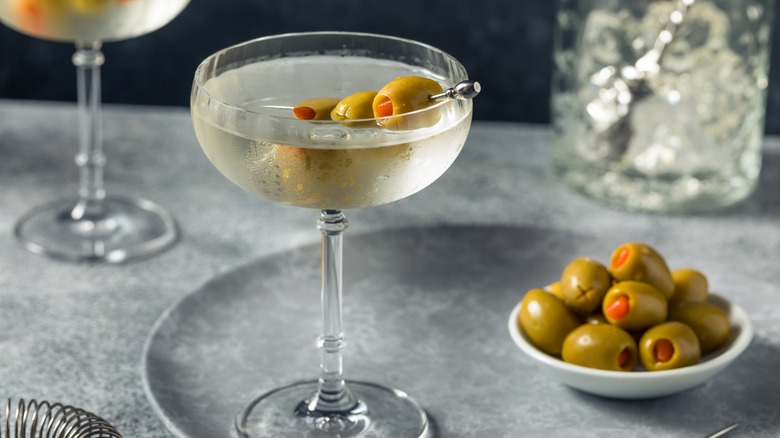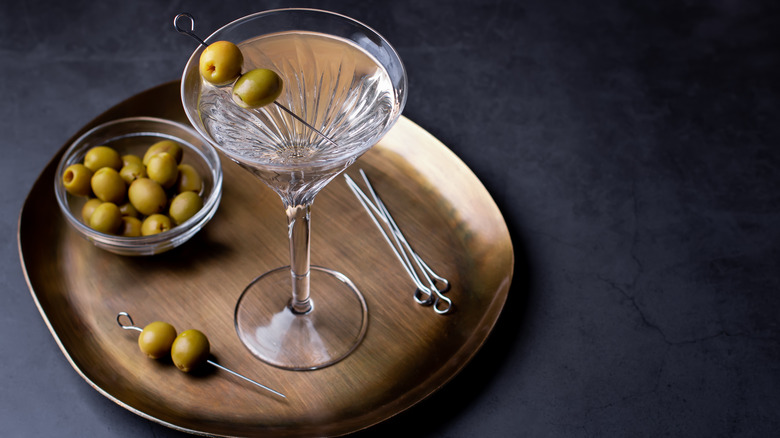Fat-Wash Your Gin For A Better Martini
The equivalent of a bath for your booze, fat-washing is one of those molecular mixology experiments that resulted in something popularized by restaurants but is easily adaptable for the creative home cook. And fat means fat — of all kinds. Oil, butter, cheese, bacon, olives, and peanut butter, are just a few ingredients that chefs have used around the globe to beef up their brew. It's like having your cake and drinking it, too.
Fat-washing is when fat (like oil or duck fat) is added to alcohol and steeped, or infused, for hours or however strong you want the flavor, explains Serious Eats. When you're happy with the depth of flavor, the alcohol is chilled, causing the fat to solidify so it can be scraped off the top, which leaves a flavor-infused alcohol base for your next drink.
This is a particularly great technique when you want one aspect of a flavor but not all of it, like in the case of olives. Olives are briney, salty, tart, and quite delicious. But maybe you want an olive flavor without all the salt. Obviously, we are talking about the signature drink where olives shine: the martini.
Fat-wash for a richer flavor
Gin is a complex liquor given to aromatic flavors from its botanical ingredients like juniper, flowers, and dried fruit, says VinePair. However, the unique flavor of gin may not pay a compliment to the salty brine of olive juice in a dirty martini. But beyond salt, olives can also add richness to the drink. There is a way for dirty gin martini-lovers to get olive-y richness without complicating the flavors of the herbaceous gin.
Maggie Hoffman for Epicurious suggests fat-washing the gin. She says to add 2 ounces of olive juice to 6 ounces of gin and let it sit in a sealed container, like a mason jar, at room temperature for a few hours or up to a day. Then, when you're ready, chill the mixture in the freezer. The fat should solidify, which will make it easy to scoop it out. Lastly, you should strain the gin before serving to ensure all the solids have been removed. The fusion alters the consistency slightly, giving it a velvety texture or, as Hoffman explains, a "thick" texture to the gin.
Cocktails and Bars offers additional tips, telling readers to stir 60 ml olive oil-washed gin with 10 ml dry vermouth in a mixing glass with ice until chilled. They then advise to strain the mixture into a martini glass with three drops of saline and a green olive.

